
The omicron variant is spreading so rapidly it has the potential to overwhelm Britain’s hospitals, highlighting the need to strengthen coronavirus restrictions and speed up the delivery of booster vaccine shots, the country’s health minister said Tuesday.
Omicron is so transmissible that even if it proves to be less severe than other variants, there is still likely to be a surge in hospital admissions if it goes unchecked, U.K. Health Secretary Sajid Javid told lawmakers.
His comments came as the government rushed to accelerate the national vaccination program, with a goal of offering a booster dose to every adult by the end of December. Lawmakers will vote Tuesday on toughened rules on mask-wearing and public venues to slow the variant until more vaccinations can be delivered.
“This is a new national mission,” Javid said. “A race between the virus and the vaccine to get as many people protected as possible.”
In another effort to speed up the booster program, U.K. health officials temporarily suspended the 15-minute observation period normally required for anyone receiving a Pfizer or Moderna shot. Doctors had complained that the waiting period—designed to spot allergic reactions before patients left clinics—usually wasn’t necessary and resulted in healthy patients taking up valuable space at crowded vaccination centers.
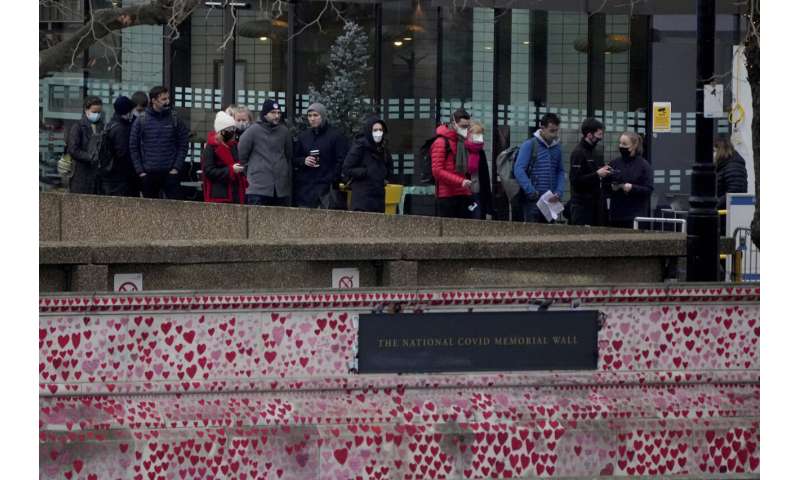
Long lines formed outside vaccination centers across England for a second consecutive day on Tuesday as the National Health Service raced to meet the government’s target of delivering up to 1 million shots a day, more than double the recent average.
Deputy Prime Minister Dominic Raab said logistical issues in expanding the vaccination program would diminish over the next week.
“It does take a few days just to make sure we get to a steady state,” he told the BBC. “We’ll keep straining every sinew to make sure we can reach that target.”
Vaccinations centers throughout the U.K. put 562,800 shots in arms on Monday, including 513,722 boosters.
Monday was the second-highest day for COVID-19 booster bookings in England, with more than 650,000 appointments scheduled, the NHS said.
In an address to the nation on Sunday, Prime Minister Boris Johnson encouraged everyone eligible to get a booster shot to “reinforce our wall of vaccine protection” against an anticipated “tidal wave of omicron.” Everyone 18 and up will be offered a third dose by Dec. 31—a month earlier than the previous target, Johnson said.
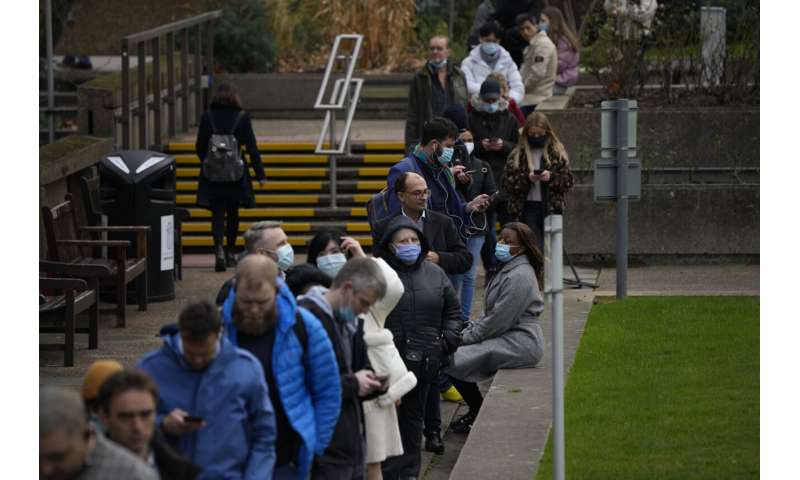
Johnson late Monday called for thousands of volunteers to staff new vaccination centers in shopping areas, stadiums and racecourses. The push mirrored last year’s vaccination drive, with primary care doctors, hospitals, the military and average citizens mobilized to deliver inoculations.
“We need tens of thousands of people to help out – everyone from trained vaccinators to stewards,″ Johnson said. “Many thousands have already given their time—but we need you to come forward again, to work alongside our brilliant GPs, doctors, nurses and pharmacists, to deliver jabs and save lives.’′
U.K. authorities have said the number of omicron infections is doubling every two to three days and the variant is likely to become the dominant form of COVID-19 throughout the country in days.
Javid said the rapid spread of omicron in Britain meant it no longer made sense to try to stop the importation of cases from abroad. As a result, the government lifted a ban on visitors from 11 African countries and a requirement that U.K. residents returning from those countries quarantine in a hotel at their own expense.
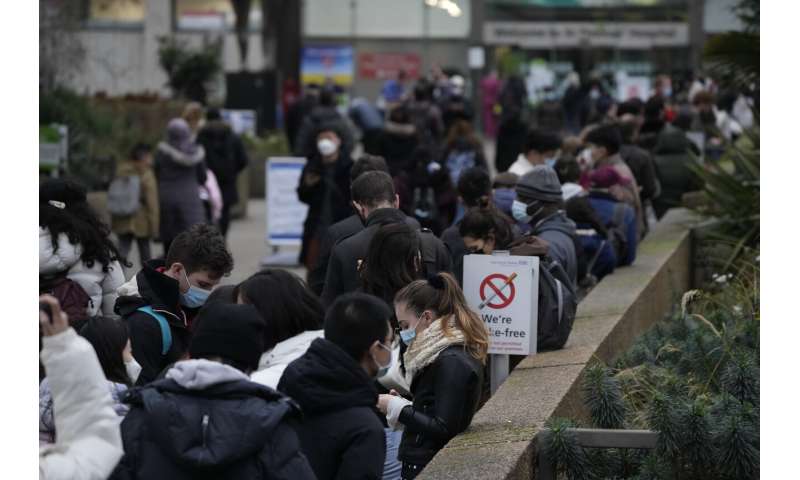
Javid said all the countries on the “red list” would be removed at 0400 GMT on Wednesday.
U.K. health authorities reported 59,610 confirmed cases of COVID-19 on Tuesday, the highest number since Jan. 9. However, widespread vaccinations means that the large number of infections is translating into fewer hospitalizations and deaths. Britain recorded 150 more coronavirus-related deaths on Tuesday, compared with 1,035 on Jan. 9.
Scientists in South Africa, where the omicron outbreak is more advanced, say the variant may cause less severe disease than the delta variant, although they caution that it’s too soon to be certain. Health authorities around the world are watching Britain closely to see what an omicron surge looks like in a country with an older, more highly vaccinated population than South Africa.
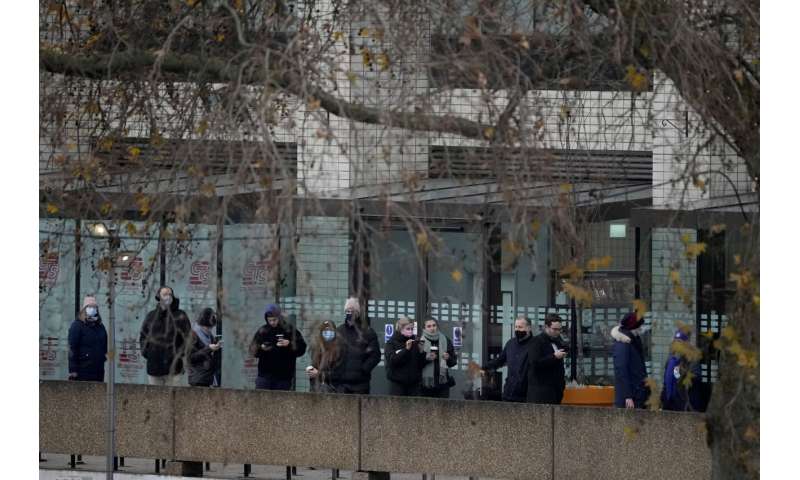
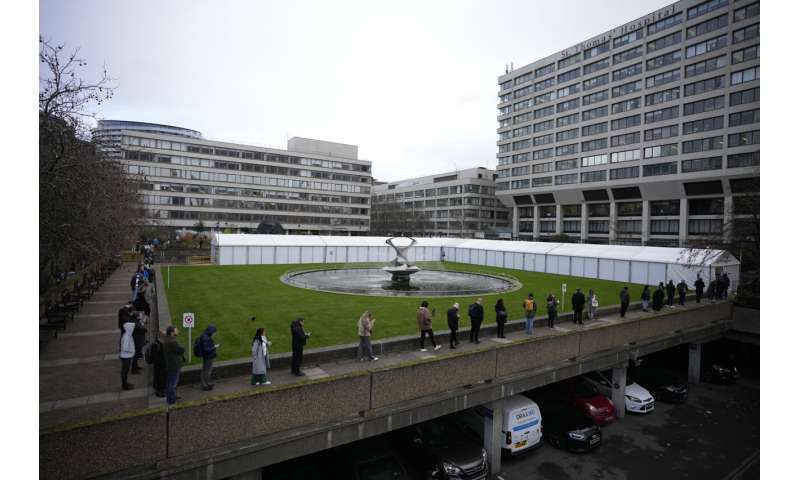
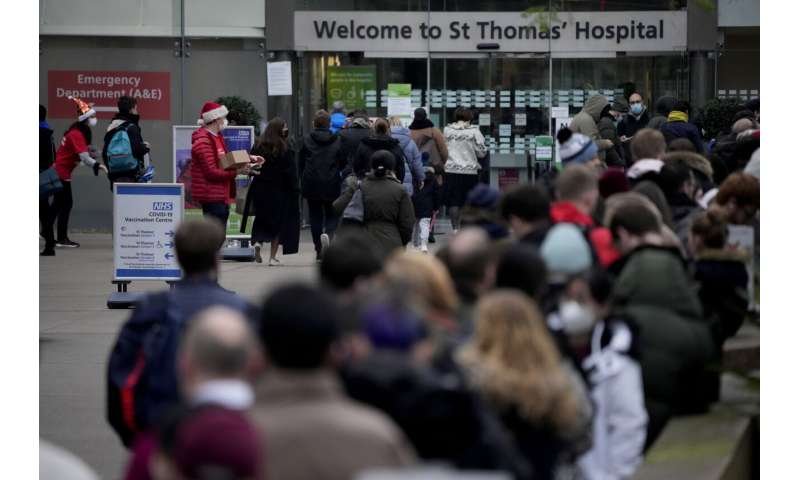
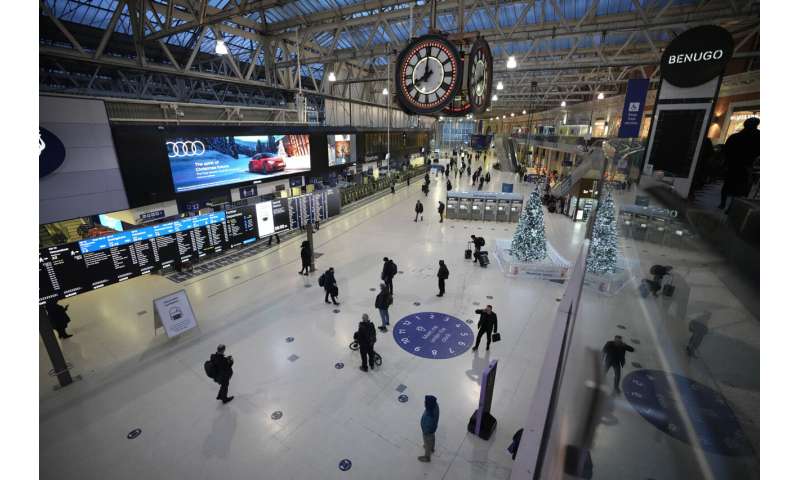
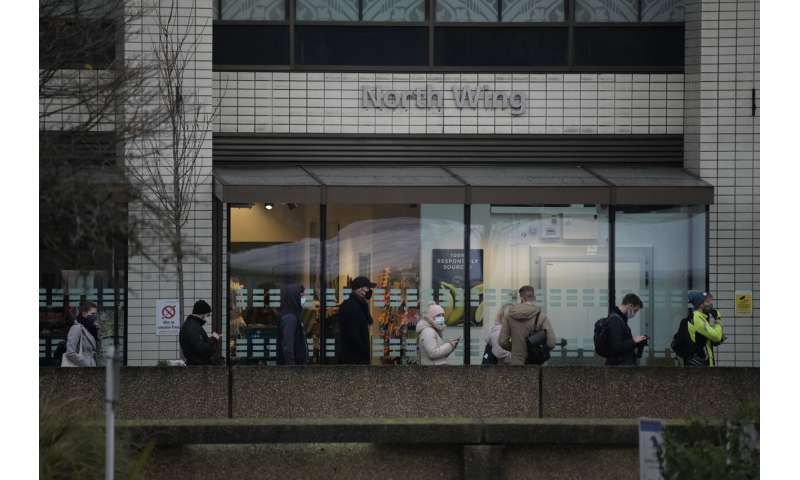
Throughout the pandemic, the British government’s primary goal has been to prevent the NHS from being overwhelmed by COVID-19 patients. This is particularly important during the winter, when U.K. hospitals are often stretched by a surge in flu cases and other illnesses related to cold weather.
Professor Chris Whitty, England’s chief medical officer, told government ministers it was too soon to know the severity of illness that omicron will produce but that “we can expect a significant increase in hospitalizations,” according to a summary of his comments released by the government.
Over the past week, an average of 811 people a day were hospitalized with COVID-19. There are currently about 7,400 coronavirus patients in U.K. hospitals, down from a peak of more than 39,000 in mid-January. Only 10 of those have tested positive for the omicron variant.
Source: Read Full Article
